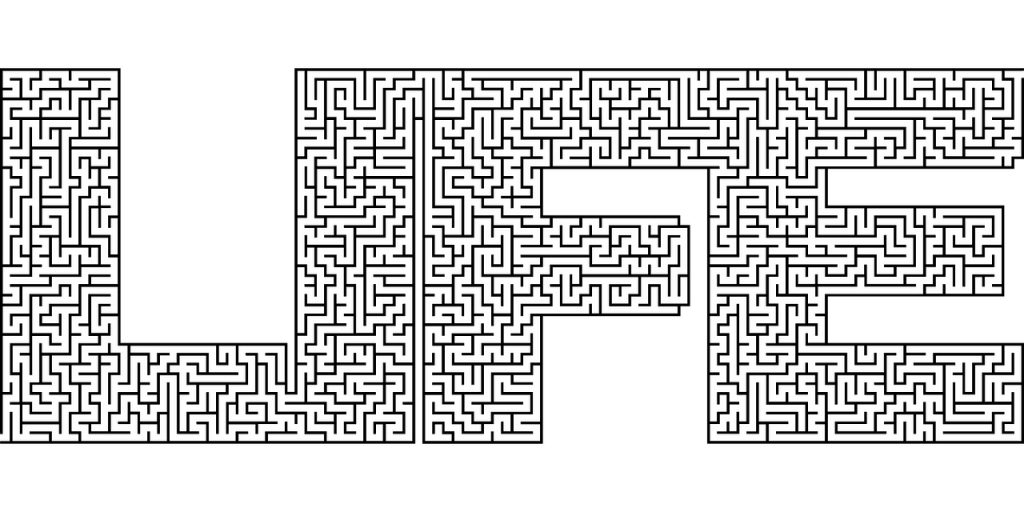It is not our abilities that show what we truly are. It is our choices. – Albus Dumbledore in Harry Potter and the Chamber of Secrets by J.K. Rowling

Every day you are confronted with countless choices.
Did you do your work or scroll through social media? Did you choose the freeway or the backstreets? Did you take the time to brush your teeth this morning? (a salient question after my recent dentist appointment)
Every single moment we make choice after choice after choice… and as Sartre pointed out: even not choosing to choose is a choice in itself!
Fortunately, there is a rich scientific history on the psychology of choice-making, and today, we’ll talk about what it can mean when you “choose with your gut.”
DELIBERATIVE VS. INTUITIVE
Researchers bucket choice-making into two broad styles: deliberative and intuitive.
Deliberative choices entail carefully weighing the pros and cons of choices against one another. Intuitive choices, on the other hand, entail going with what “feels right” or what your “gut says.”
Although evidence suggests that deliberative choices generally produce better outcomes than intuitive-made ones, that’s not always the case. For example, for really complex decisions, it can be better to go with your intuition versus deliberating over every aspect.

But when choices go wrong – as they inevitably do – how do you view the consequences of them? And how does depend on whether you chose with your brain (deliberative) or your gut (intuitive)?
In one study, participants were given a choice between two cameras they could purchase. In one condition, participants were instructed to make the choice deliberatively (i.e., weigh the strengths and weakness of each). In the other condition, participants were instructed to make the choice intuitively (i.e., go with their gut preference).
Then, after making their choice, all participants learned some disappointing news: a consumer report revealed that they had selected the worse camera.
In the face of this information, who had more regret about their choice? Those who had made their selection after much deliberation? Or those who went with what felt right? As it turned out, those who made the choice intuitively (i.e., with their gut) reported less regret about their bad purchase.
The researchers found that when we make decisions intuitively, we tend to be more confident in those decisions. This enhanced confidence then “protects” our opinion of those choices — even if those choices turn out to be bad ones.
WHAT MY CHOICES MEAN TO ME

Part of the reason that we are more confident in our intuitive decision-making is because these choices are often made quickly. And recent research shows that we infer quickly/easily made decisions (vs. slowly/difficultly made decisions) are more reflective of who we are.
In one study, researchers had participants choose between multiple different gambles they could make, where some gambles were much riskier than others.
For half the participants, the researchers artificially made this choosing-task more difficult/longer by writing the options in a hard-to-read font. For the other participants, they made the task easier/quicker by writing the options in an easy-to-read font.
Now, in the end, all participants chose the least risky choice because it had the best odds. However, the researchers wanted to know how the difficulty of making the choice influenced their views of themselves.
For those who had an easier (vs. harder) time making the choice, they reported that they themselves were more risk-averse (i.e., they said they would make less risky choices in their future decisions and behaviors).
In other words, when people make a decision quickly/easily, they tend infer that their choice is representative of who they are as an individual. Similarly, when people make a decision with their gut, they similarly infer that this decision reflects who they are as a person.
But, is this a good or bad thing?
ARE GUT DECISIONS GOOD DECISIONS?
When making decisions with our gut or making choices that seem easy, we tend to be more confident in those choices and believe they represent who we are. And on the one hand, this can be a good thing.

For example, if you were trying to get yourself to regularly contribute to a retirement savings plan, emphasizing that you made the decision to do this because “your gut” said so (vs. a careful deliberation of facts), it could potentially make you more committed to your plans.
However, you also have to be wary of becoming too stuck in a choice because you made it with your gut.
Although you may be inclined to infer that gut decisions are good choices, that is not necessarily true – even if it feels that way! However, by maintaining better self-awareness about how your choices are made, you can strive to achieve the most optimal outcomes for yourself!
Like choosing to floss your teeth more…
Choosing to Have His Cavities Fixed,
Jake
Everyday Psychologist Thoughts: Although it’s not exactly going with your gut, a related feeling is the “eureka” or “aha!” moment that we all experience at different points in life. In research, these are often referred to as ‘insights,’ where the solution to something becomes suddenly clear to you. Research indeed shows that these aha-moments tend to indeed be right more often than not; however, this doesn’t mean they can’t have some negative influences, too. For example, when researchers were able to trick people into experiencing these aha-moments (i.e., by designing a puzzle where the solution suddenly became clear to people), the researchers were able to get participants to believe false statements were true. So, again, just because something feels right doesn’t mean it is right — and it’s very rare that a little extra thought to a decision comes to hurt it.
Laukkonen, R. E., Kaveladze, B. T., Tangen, J. M., & Schooler, J. W. (2020). The dark side of Eureka: Artificially induced Aha moments make facts feel true. Cognition, 196, 104122.
Maglio, S. J., & Reich, T. (2020). Choice protection for feeling-focused decisions. Journal of Experimental Psychology: General.
Steffel, M., & Williams, E. F. (2020). Do Our Choices Tell Us Who We Are? It Depends on How Easy or Difficult They Were to Make. Journal of Consumer Psychology.


Susan Marie Davis
I used a capital L when not needed. Don’t look too hard, but look enough. When people treat you the way they do, believe them.
Susan Marie Davis
I appreciate this article. I personally am in a period of self discovery.
Good choices vs habit vs intuition.
All involve matters of the heart. I personally have given more of me than than I need.
Just because you are intelligent, you need not play in adult warfare. I rely on intuition now more. But have Learned from past experience. Pretty ugly. I’m not talking about me.
Jake
Hi Susan, thank you for reading. I hope your period of self discovery is a fruitful one.